#the opposite of knowledge is anti intellectualism
Explore tagged Tumblr posts
Text
As a Art History and Heritage researcher, I have to say “Nosferatu” (2024) geniality cannot be underestimated. This is an absolute historic triumph. Robert Eggers recreated the early 19th century setting, way of thinking and behaving, so masterfully, he actually convinced the general audience into believing the Victorian characters are the “good guys” here, and the Eastern European Pagan shaman-priest is the villain of the story, and that his protagonist Ellen is a passive victim at his hands. And now many are starting to realize that’s not the case and are throwing a fit or making weird mental gymnastics to validate their incorrect interpretations.
This isn’t surprising because this tale has years on the making, and it’s an entirely new story under a familiar make-up. Academics and researchers helped shape this story (History and Romanian folklore; Eggers is an occult scholar himself but he only talked about it publicly once); Academic thesis were used to create the script and the world building (“Dracula” literacy analysis; Şolomonari connection to Zalmoxis worship); a dead language was reconstructed for this (fictional but very well-researched alongside linguistics specialized on Balkan extinct languages); two different types of English are spoken (late 16th century and 19th century). The historical accuracy of everything is on point: Romanian Folklore, Victorian sexuality views, Victorian medicine, demonization of Pagan beliefs by Christianity, 19th century racist theories; the threat of female sexuality as a contagious disease (Ellen), etc. If this wasn’t horror I would even recommend this film as a study tool to understand the early 19th century.
The comprehension of these references and themes are way out of your league. Many of these are academic-level knowledge; others should be general knowledge (Victorian era as sexually repressed) but apparently aren’t(?) Either way, the entire “discourse” around this film comes from the general audience lack of historical knowledge and ignorance about these themes and references. I’m an academic myself, and I had to breakdown the entire story to see what this is actually about. Some of you watched this film once and already think you know? When you can’t even interpret one scene from this film correctly, and think Orlok appeared to Ellen when she was a little kid or that Ellen’s father abused her?? The prologue and her scene with Von Franz contradicts both these “interpretations”. Most of you don’t even realize it was Ellen who cursed Orlok to be a strigoi, to begin with (or probably don’t know what a “strigoi” is).
The cast and crew already explained what this film is about in interviews, but there appears to be a weird rejection of everything the creators of this story have to say. But Robert Eggers probably isn’t concerned because he didn’t make this film for you. The way modern audiences digest Art is extremely bizarre to me. This is not how interpretation of Art works, and I tell you this as someone who interprets Art in its historical context for a living. This is my job. And this is a director obsessed with historical accuracy and with a strict artistic view. There are no “multiple opposite interpretations” here. Because he’s using specific academic thesis to create his story. On a personal level you can see whatever you want to see, but if your intention is to understand this story know you are incorrect. And the majority of the “breakdowns” and “interpretations” out there are incorrect and the only world I can use to describe them is “bullshit”. Because these content creators and influencers have no idea of what they are talking about. But the Internet gave them the illusion they do, and they are very proud in displaying their ignorance to the world. Or those who are going around making jokes about “wanting to bounce on Orlok crazy style”. Your anti-intellectualism gives me second-hand embarrassment. This is the peak definition of functional illiteracy, and what’s worse is that the folks who want to know will come across this content and think “yeah, that’s what’s this film is about”.
This entire story a huge middle finger to Christian Victorian society. This a celebration and vengeance of Paganism on Christian civilization, embodied in both Orlok and Ellen characters. Robert Eggers called Ellen the only heroic character of his story; and Ellen and Orlok share the same spirit, the same nature (one Ellen rejects until she embraces it, at the end). They are the true heroes here. The Pagan priestess and the Pagan priest-shaman bringing death and plague upon the Christian civilization that demonized them using their Sex Magick, and end it with Sex Magick too, to give birth to the New Age of Aquarius (which was already the occult meaning of the 1922 “Nosferatu” ending, Eggers included the divine feminine instead of the “virgin sacrifice”). That’s why Eggers describes his ending as a “sacred marriage” between Ellen and Orlok: their sexual encounters are ritualistic, and always have been, and it’s Ellen sexual energy that conjures Orlok, every time: she’s the one who calls out to him, always. She has full agency over their connection (and Herr Knock ritual scene should tell you this; Ellen ending their connection when she met Thomas, and sending the maiden token to reconnect).
Everything that happens in this story is according to Ellen’s will. She has Orlok where she wants him to be; and, yes, she plays both Thomas and Orlok, and weaponizes them against each other (“Wuthering Heights” inspiration, hello?). Because she’s a dark character (like every Gothic horror protagonist), and her innocence and naivety are a front she puts on for Victorian society, her true self is only shown in some occasions because this story gives you several POVs. And that’s why Lily-Rose Depp tells us Ellen is “not a victim at all” because “she’s the one calling the shots the entire time”. She’s like Catherine; she wants to fuck around with Heathcliff/Orlok, while being married to the respectable Edgar/Thomas. But here it’s Orlok that’s not having any of it. I would even say the only victimized character here is Thomas himself, who gets caught up in the middle of something he doesn’t know nor understands and gets his entire life wrecked as a result (like Edgar Linton).
This whole story is about Ellen liberating herself from Victorian society, taking ownership of her own sexuality (one that according to Victorian era belongs to her husband) and embracing her nature, as she fully accepts Orlok at the end. She’s as evil and as good as he is. It’s not that hard to understand.
#that’s it that the rant#Nosferatu 2024#Robert Eggers#Ellen Hutter 2024#count Orlok 2024#Thomas Hutter 2024#friedrich harding#anna harding#professor Von Franz#Von Franz#dr sievers#Herr knock#Victorian era
84 notes
·
View notes
Note
honestly surprised to see you sharing stuff about indigenous spiritual knowledge
im now an immigrant to turtle island, so i think its natural to be curious about the intellectual landscape of the peoples that live here! im still an anti theist who doesn't make a distinction between religion and spirituality tbc, but i like studying philosophy and science and those are tied up in religion and our spiritual life and always have been. its all meaning making of the world? if i was studying science in the middle ages i'd have to also be understanding islam. so much mathematical and astronomical development happened simply to figure out in which direction to pray. and with it comes critiques of religious orthodoxy too.
from the great polymath alberuni's study of india and its science you'll find rebukes to brahmagupta for being a mathematician who doesn't have the moral courage to dispute the theology about the eclipse.
Alberuni quotes Brahmagupta's criticism of Aryabhata and his followers, in defence of the orthodox religious theory [...]
"Some people think that the eclipse is not caused by [a shadown planet and deity, Rahu's] Head. This, however, is a foolish idea, for it is he in fact who eclipses, and the generality of the inhabitants of the world say that it is the Head that eclipses. The Veda, which is the word of God from the mouth of Brahman, says that the Head eclipses. ...On the contrary. Varahamihira, Shrishena, Aryabhata and Vishnuchandra maintain that the eclipse is not caused by the Head, but by the moon and the shadow of the earth, in direct opposition to all (to the generality of men), and from the enmity against the just-mentioned dogma."
Alberuni, who is quite excited about Aryabhata's scientific theories of eclipses, then accuses Brahmagupta (a great mathematician himself) for lacking the moral courage of Aryabhata in dissenting from the established orthodoxy. He points out that, in practice, Brahmagupta too follows Aryabhata's methods in predicting the eclipses, but this does not prevent Brahmagupta from sharply criticising - from an essentially theological perspective - Aryabhata and his followers for being heretical and heterodox.
SEN, AMARTYA. “INAUGURAL ADDRESS: HISTORY AND THE ENTERPRISE OF KNOWLEDGE.” Proceedings of the Indian History Congress 61 (2000): 1–13. http://www.jstor.org/stable/44148076.
so my attitude to indigenous spirituality is on the same continuum! im very early in my study so ofc im yet to discover what constitutes heterodoxy in say, anishinaabe spiritual life or if the material conditions of genocidal violence preclude it.
26 notes
·
View notes
Text
by Sabrina Soffer
In classes where I was often the only pro-Israel student, and sometimes the only Jew, I chose to write papers and deliver presentations about Israel and Jewish life. In my Frankfurt School course, my final project Israel on the Utopian Horizon analyzed the Israeli Protest Movement through philosophies of Theodor Adorno, Ernst Bloch, Martin Buber, and José Munoz. Aside from quenching my personal academic interests, the project demonstrated how Israel embodies the liberal Frankfurt School principles that my non/anti-Zionist peers admired.
Another project in my course “Power,” used Michel Foucault’s Discipline and Punish to describe how universities have become like “Intellectual Panopticons” that lead to “Self-Censorship.” The panopticon concept represents a prison-like mechanism where constant surveillance enforces social control. Using Jonanthan Haidt & Greg Lukianoff’s The Coddling of the American Mind and drawing from my personal experience, I argued for reimagining individualism as responsible citizenship — expressing disagreement respectfully and assertively, even if standing alone. Once again, I demonstrated how many of my peers were misusing and abusing Progressive ideals against those holding political differences.
Unsurprisingly, those words I had penned during my sophomore year would become a reality. Despite widespread opposition, I formed the GW Student Association Antisemitism Task Force in early 2023. Approaching adversarial audiences by altering my communication style to make statements appear uncontroversial — and flipping my opposition’s arguments against them — provided instrumental lessons in persuasion. I even invited members of SJP and Jewish Voice for Peace (JVP), who pledged anti-normalization, on board; they could no longer delegitimize my initiative by tarnishing me on the basis of my Israeli, Jewish, and American identities.
I could not have achieved these goals on my own. Outreach is a key ingredient in the recipe to success. The advice from public intellectuals like Einat Wilf, legal powerhouses like the Brandeis Center for Human Rights Under Law, and other Jewish organizations like AMCHA were instrumental to formulating my approach. GW Hillel placed QR codes around their building and sent emails to Jewish community members to make public comments at the Student Senate meeting where a vote on creating an antisemitism task force would take place. Over 30 students showed up, and public comments that night ran for nearly an hour. In the end, the task force passed unanimously.
While the task force was dismantled by the following year’s Student Association president, its work has continued. Since the October 7th terror attacks, my peers and I consistently meet with professors and administrators to understand university conduct policies; we have learned to convey our perspectives to administrators who tread to take action. We’ve examined state and Federal law pertaining to Title VI, boycotts, and more. We engage with policy makers on the state and Federal level. We organize and advertise GW and DC-wide events. Most importantly, we have learned to engage substantively with prevalent and opposing views, block out hate, and hold our heads high with robust Jewish spirit.
My story is much less about what I accomplished, but the knowledge, skills, and strong sense of character I gained. Understanding your rights and learning to articulate information to diverse audiences are as important in school as in relationships and the workplace.
12 notes
·
View notes
Text
I’ve been re-listening to the Alex Jones depositions, as well as coverage of Jones generally, from the Knowledge Fight podcast, and in one of their episodes where they’re covering Jones’ evolving rhetoric about COVID-19, one of the hosts makes the argument that Jones was trying to downplay the virus but still keep people afraid of it, because if his audience was too scared they may be more inclined to follow public health guidelines, so Jones was pushing anti-vaxx and anti-public health sentiments in order to scare people just enough to buy his survival meal packs and colloidal silver toothpaste instead.
And I think this is a really good way to approach discussions of modern american fascism and reactionary thought - the perfect marriage between anti-intellectualism and the logic of capitalism. Every time you hear an absurd reactionary claim about covid, these are not claims about reality, they are advertisements for right wing wealth accumulation. Which is of course conducted with the long term goal of building right wing power and justifying the disenfranchisement and oppression of marginal populations, but these “problems” are framed in such a way as to encourage a consumerist solution. Their undergirding logic is capitalistic in nature - the idea that you can give your money to an authority in exchange for salvation, which comes in the form of a standardised unit of metal-infused toothpaste or vitamin pills.
This view also makes it much easier to understand why people were taking horse heart dewormer to treat covid - even if they were buying that shit in a local store and the people peddling it (like Jones) don’t directly financially benefit from it, the claim that you can individually purchase your way out of a global pandemic still benefits the right wing, because it’s the direct opposite of broad public health initiatives like free vaccinations and social distancing guidelines, which is viewed as a form of communism. Something I don’t actually disagree with (the logic of these public health programmes is basically socialist in nature, even if the government doing it is anti-communist) but this framing prevents people from ever accepting any kind of government social program, instead flocking to the right wing, who plaster promises of eternal life on their billboards
224 notes
·
View notes
Text
I understand and yet don't get it when people go "Oh my godddd we're Literally Living In Fahrenheit451!!!1!" Missing the forest for the trees here I'm sure I understand people just mean the anti intellectualism but you can't invoke the World of f451 as if it was meant to be a picture of the future when it was an exaggerated picture of 1953. The numb, suicidal housewife with nothing going on in her life beyond entertainment was a very specific american Pre No-fault-divorce phenomenon, not an upcoming consequence of Big Telly. It was written during an american period of high surveillance, repression and paranoia (second red scare) but bradbury himself had multiple strange thoughts in his noggin that present themselves at various points of the book, dialogue where opposition to racial caricatures is lumped in with general hatred of Knowledge, or the main character getting fixated on how many New Testaments are left in Our Now Goddless America. idk. you can find the general message poignant it obviously is but like, I can feel and smell the age of the text so I don't swallow it whole
7 notes
·
View notes
Text
CEN childhood emotional neglect.
What are emotional neglect examples? [tw abuse]
Here are 19 emotional neglect examples.
Dismissing a child’s feelings when they are upset or hurt.
Being detached, cold
Ignoring a child’s attempts to emotionally connect.
Lack of family closeness, emotional intimacy, or warmth.
Being hostile.
Saying harsh or hurtful things to a child
Making a child feel like an inconvenience or burden.
Lack of positive feedback, praise, encouragement, affection, or nurturing behaviors.
Constantly criticizing.
Not providing comfort or reassurance during times of stress.
Permitting a child’s maladaptive behavior, such as damaging properties during tantrums.
Not spending quality time with a child.
Ridiculing a child for normal emotional needs or vulnerability.
Lack of interest in a child’s life or activities.
Rejecting a child.
Showing dislike.
Exposing a child to domestic violence or abuse.
Not intervening or supporting a bullied child.
Neglecting a child’s need for affectionate physical touch, like hugs.
Here are 20 signs you were emotionally neglected as a child.
Low self-esteem
Self-criticism
Low self-worth
Depression
Anxiety
Feelings of shame
Difficulty regulating emotions
Sensitivity to criticism
Feelings of emptiness or loneliness
Difficulty discerning or expressing emotions
Emotional unavailability
Poor social skills
Struggle to connect with others
Difficulty trusting others
Isolation
Relationship challenges
Fear of abandonment or rejection
Impulsive behavior
Aggression
Substance abuse
What are the signs of emotional neglect in a child?
Aggression, such as disruptive behavior, oppositional behavior, and impulsivity
Withdrawal or passivity, some transition from passive to increasingly aggressive behavior
Anxious or avoidant behavior
Poor emotional knowledge and regulation
Difficulties interpreting emotional expressions in others
Negative self-esteem
Developmental delay due to neglect, such as language delay, failure to thrive, cognitive function development delay
Poor peer interaction and social skills
Insecure attachment, some transition from ambivalent to avoidant attachment
Dissociation
Child-related risk factors
Child-related risk factors are characteristics of children who are associated with a greater risk of neglect. The presence of these factors does not mean the neglected child is in any way responsible. The responses of neglectful parents to these factors determine whether the child is neglected or not.
Here are the 5 child-related risk factors.
Infant or younger children
Externalizing behavior
Poor social competence
Behavior disorders
Disability, including physical, intellectual, mental, multiple impairments, or complex medical needs
Parent-related risk factors
Here are 15 parent-related risk factors that increase the likelihood of a neglected childhood.
Younger parents, such as teenage parents
Difficulties in emotional regulation
Low self-esteem
Social isolation or anti-social behavior
Drug abuse
Alcohol addiction
Criminal activities
Depression
Somatic problems
Childhood abuse
Lack of parenting knowledge and skills
Gambling problems
Parental insensitivity
Unrealistic expectations of the child
Parent is emotionally unavailable due to preoccupation with personal needs
Family-related risk factors
Several studies have identified the following 6 family-related risk factors associated with family neglect.
Domestic violence
Single parent
Poor parent-child relationship or dysfunctional family dynamics
Parental perception of the child as problematic
Poverty
Poor socio-economic status
Environment-related risk factors
Researchers have found 5 living environment risk factors.
Poor community support
Inaccessible soci lsuport services
Alcohol availability and widespread consumption
Unstable environment
Cultural and social norms
Child institutionalized or placed in an orphanage
#cen#childhood emotional neglect#emotional abuse#tw abuse#neglect#you are loved#CEN#parents#abusive parents
17 notes
·
View notes
Note
Hi! For start congrats on the milestone 💞
So for the color analysis event that got me intrigued I'm picking Reiner ofc. And the color I'm picking for me would be light purple if that's good and wasn't submitted yet 🤧💜
thanks so much for the kind words Mai <3

Reiner Braun
It's certainly an interesting choice since purple on the opposite spectrum to yellow - Reiner's "official" color and also the color that I myself assigned him. So, suffice to say, this would be interesting to dive into.
One of the distinctive features of the color purple lies in its composition, being a fusion of two colors - red and blue. This symbolic blend mirrors Reiner's dichotomy as both a Paradis soldier and a Marleyan warrior. But unlike the harmonious combination represented by purple, Reiner has always grappled with the challenge of assigning himself to either of the roles bestowed upon him.
Purple is also symbolic of mystery and the unknown. While this aspect doesn't directly align with Reiner's overarching narrative, it does coincide with the period between seasons two and three when his motivations became pretty much a mystery, sparking discussions and speculation.
Purple, historically associated with power as it was originally worn by monarchs, reflects an interesting facet of Reiner's character. On one hand, it aligns with his influential role in the RBA group (being its leader), where his decisions catalyzed major plot events such as the Fall of Shiganshina and Clash of Titans. Yet, this symbolism takes on a painfully ironic undertone in Reiner's life. Not only was his entire existence dictated by those in power, but even his installment as the Armored Titan resulted not from his efforts but from the influence of another person.
With this said, it only goes downhill, as nearly all the purple symbolism serves to underscore the ironic tone of Reiner's character rather than aligning with any of his other traits.
Take, for example, the connotation of innovation associated with the color purple - it truly drives the point across (and is my favourite to talk about). Purple, commonly linked to knowledge (hence Hange's "official" color), can also symbolize innovation, a product of intellectual work. However, innovation is precisely what Reiner is not, as demonstrated by the vulnerabilities of his Armored Titan to recent inventions - such as Thunder Spears (again, Hange's creation) during the Return to Shiganshina and the new anti-Titan artillery at the battle of Fort Slava. Innovation is simply not a defining trait for Reiner in the context of the color purple - on the contrary, it contradicts his character.
Another facet of the color purple is its fantastical quality, fostering the imagination. But in Reiner's case, not only it is ironic but also tragic, considering his initial motivation of becoming a Marleyan Warrior. Erroneously hoping that gaining a Titan would improve his family situation, Reiner imagined a future where his father could live with them, reuniting the family. However, this dream shattered when his father rejected him, leaving Reiner disillusioned. Another dream that met a similar fate was his aspiration to become a great Warrior after successfully completing the mission on the Island and earning himself a hero status. Evidently, this ambition never materialized, reinforcing the theme of disillusionment in Reiner's story. In this sense, the color purple only amplifies the mockery of magical and fantastical elements it brings for Reiner's story.
But the suggested color for Reiner is light purple - meaning, it has white added to it. While the color white may not significantly contribute to the conversation about Reiner's character, one prominent meaning associated with this color is that of a new beginning and the ability to start over. White, often seen as a plain canvas for other colors, symbolizes a clean slate. Although not directly indicative of Reiner's personality, it does represent his narrative progression of perception - initially viewed as an older brother figure, then thrust into an antagonistic role, and ultimately reinstated in a positive light, earning the role of a character worth rooting for.
All in all, the symbolism of purple doesn't directly play into the nuances of Reiner's character. If anything, it downplays and mocks the elements that are indicative of Reiner which is also interesting to see. It may not be Reiner's color but it could well be its antithesis, considering that purple is the direct opposite of color yellow (the color I believe to be Reiner's "official") which is a delight to see.
#ee that was so interesting i didnt think it would be so much fun to dive into the color that represents almost everything that reiner is not#mae's cae#reiner#reiner braun
10 notes
·
View notes
Text
THE WORLD OF PARMENIDES – ESSAYS ON THE PRESOCRATIC ENLIGHTMENT by Karl Popper
On the traces of our thinking - Part One

„Bright in the night, with an alien light, Round the Earth she is drifting. Always she wishfully looks Out for the rays of the Sun.”
Philosopher of Science Sir Karl Raimond Popper admired the Presocratic philosophy throughout his lifetime. Popper considers the Presocratic speculations and cosmogony as the beginning of our history of science, especially with regards to epistemology and theoretical physics. It is believed that speculative philosophy began with the Ionians, including Thales of Miletus and his disciple Anaximander. They developed the method of critical approach or critical tradition: To approach an explanatory myth (critical revision of mythical poems such as Homer or Hesiod’s "Theogony") with critical eyes. Even today, the verification of a theory for its truthfulness is a special feature of science. However, one should not underestimate the importance of incorrect theories, which were able to justify the problem and refine the explanation in the first place through falsification, since they can lead to a finer awareness of the problem again through the refutation. With this following book, Popper wants to contribute to a better understanding of the Presocratic. In addition, he wants to illustrate with his explanations the thesis that "history is- or should always be, the history that serves to solve the problem (...)." Popper discusses the basic ideas of the early Greek philosophers and shows the development of a critical methodology with the legacy of the search for truth, illustrated in particular by the didactic poem by Parmenides and the parable of the two paths.

The importance of Presocratic ideas in today's science is found in the reconciliation and unification of contradictory assumptions: Nothing changes (Parmenides) and everything changes (Heraclitus). But how is change possible in the first place and how do we come to knowledge? It is a remarkable intellectual achievement to define different forms of knowledge and to distinguish intellectual thinking from knowledge in general. The revelation of the goddess (Ananke? Dike?) is a journey to the real and deceptive world. An experience of rapture must have distorted Parmenides' reality of life in such a way that he depicted this lightning-like illumination in this dualistic conception. The goddess, who describes the human world as false and deceptive, wants to reveal to Parmenides the secret truth about nature and reality, but also the false opinions of mortal men. As mentioned above, the dualistic concept can also be found in the textual form: The poem is divided into two parts and begins with an introduction (Proömium). The first path is described as the Path of Truth (or the Path of True Knowledge) and the second path as the Path of Human Conjecture (Path of Conjectural Knowledge). The second part has survived only in fragments, the incompleteness is illuminated by Plutarch's reports, whereas the first part caused a sensation and was often quoted and copied. In the first part, "The Path of Truth", the Goddess presents a radically rationalist and anti-sensualist epistemology and then leads to a purely logical proof, culminating in the thesis that there can be no movement and that the world is in truth made up of a motionless, gigantic, homogeneous and massive spherical block where nothing can happen: Neither past nor future. This world stands in sharp contrast to the world of apparitions in part two, The Path of Human Conjecture. This is the world as ordinary mortals experience it, the rich and varied world of movement, change, development, the colourful world of opposites, the world that distinguished night and light. Dualistic-World-Concepts arise from the preoccupation with the question of the first substance, or in this particular case, one assumes a twofold building material (e.g. spirit > < body ; subject > < object).
“Listen! And carry away my message when you have grasped it! Note the only two ways of inquiry that can be thought of: One is the way that it is; and that non-being cannot be being. That is the path of Persuasion, Truth’s handmaid; now the other! The path is that it is not; and that it may not be being. That path- take it from me! – is a path that just cannot be thought of. For you can’t know what is not: It can’t be done; nor can you say it.”
[Character limit :/ ...text continues in the second part]
#Presocratic philosophy#cosmogonic questioning#ontology#epistemology#philosophy#literature#Karl Popper#Popper#philosophy of science#scientific research#history of theories#metaphysics#Parmenides#Heraclitus#substance and being#theories of conscience#eternal truth#ancient philosophy#ancient wisdom#ancient scepticism#knowledge#real knowledge#Entrückungsmoment#Xenophanes#Eleatische Schule#Ionische Schule
3 notes
·
View notes
Text
btw while i do think the backlash against a lot of mcrp content goes hand in hand with some ccs being quote on quote problematic / the most vocal stans being annoying as hell and that knowledge being the only thing that permeates wider circles beyond people who actually watch mcrp (and understand bits of this to an extent)... i'm not claiming mcrp is high art (it's the opposite often) but i think a big part of the backlash and people's inability to take stuff seriously ties into the rise of anti-intellectualism both on here but also primarily on tiktok. but i literally woke up like five minutes ago so that's a post for another day
6 notes
·
View notes
Text
I agree with some of what you're saying and I disagree with other parts, some parts vehemently. The talking point about the primaries being rigged... it just doesn't work for me. This was not an example of it being rigged, because there flat out was no primary. There was nothing to rig. Since timing was short, they chose the VP. It's the most obvious choice, as it's the person people already technically voted for when they cast their ballots for Biden.
Another thing about the primaries is that parties don't owe you those in the first place. You can choose to vote for whichever party or independent you want. The parties don't owe you a separate democratic process for choosing their candidate. Simply don't vote for their candidate if you don't like who they chose. That's what happened this time around, clearly.
Sorry, that topic is just a pet peeve.
The assumption of "vote blue no matter who" was definitely wrong and I definitely agree it was a problem. I believe the reason they tried so hard to court moderate Republicans is because they probably were aware of the fact that public perception of the party right now is that they are too far left, as funny as that is to anyone on the left.
Honestly, I think it's hard to energize the Democrat or leftist voters. The leftist media sphere is very anti-America and anti-electoral politics. They mock the idea of voting. They are embarassed to support the candidates, as they view them as an extension of the colonizer state that they loathe so much. I don't have as much insight on why it's hard to energize the moderate left, true Democrats, but I'm sure someone out there knows.
Republican voters certainly don't have a monopoly on being dumb or voting based on emotion. I would certainly never claim that everyone who votes Democrat are intellectuals. Hell, even some of the people who ARE intellectuals voting for the Democrats are people I'd consider dumbasses. People who rallied behind Kamala while still insisting that she was genocidal come to mind.
THAT BEING SAID, I do sort of resent what you said about Democrat voters being histrionic. Voting for the guy who tried to steal the previous election sets a very scary precedent. Especially if you have any knowledge about how it was done. And it seems like the fears of what kind of administration he'd run are already proving to be correct, based on who he is nominating.
The Republicans are, right now, more fanatical and fundamentalist than they've been in awhile. Abortion already got flipped to the states. Trans issues have been center stage for years, primarily because of right wing media keeping it there. It's a scary time if you have any progressive values whatsoever. And those fears are not at all unfounded. The same cannot be said for the opposite side.
For your short list:
Don't agree with your phrasing, but I agree with you on the optics. It was definitely a bad move to skip the primaries, but I wonder if Biden stepping down so late sort of doomed them regardless.
They definitely need to energize their base more.
Appealing to Republicans certainly didn't work this time, although I think it should still be done. Biden had some success with it.
The smugness angle certainly needs to be addressed, but it's difficult with such a huge double standard in demeanor between the parties.
Wasn't even aware they scapegoated minorities, but if they did that certainly isn't a good play either.
I personally like the DNC, but they need a big refresher on strategy going forward. I have some confidence they'll at least have a better attempt next time. If they lose again this brutally, it will be crazy, but that's assuming USA has any more elections lol.
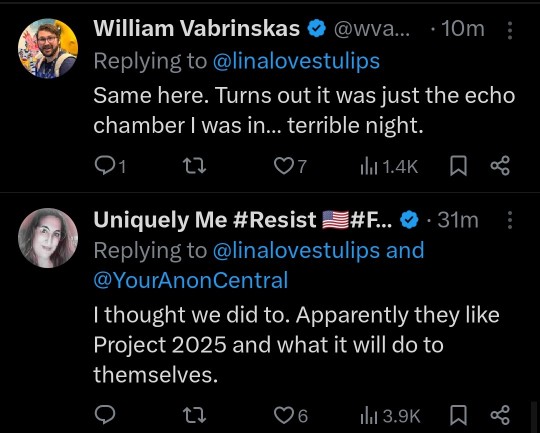
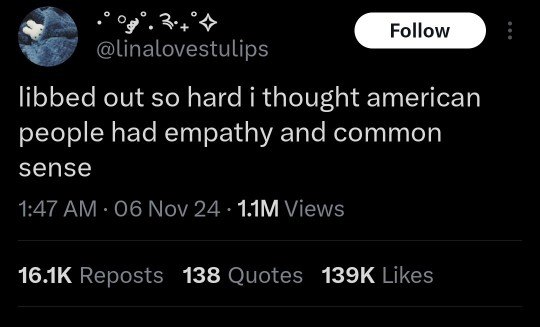
25K notes
·
View notes
Text
scripture and priest-kings
much anger and grief from truth-seeking non-believers towards religious people come from inconsistencies in religious texts, doctrines and voices.
likewise, much failure to touch non-believers, even unkindness, comes from defensive efforts to circumvent or repress the god-given gift of understanding. truth is, non-believers possess this gift as much as believers. we are all equally capable of ignorance.
epistemics are universal, not cultural. knowledge comes from science, not religion. critical thinking is vital, not accessory, and it always transcends identity.
polemics and disputations and debates and controversy are how the understanding of everyone is broadened. they're not an option in democracy. they're not a sign of malaise; democracy has to be plural.
criticism is inherently good, and book-burning is inherently bad.
it is the absence of controversy and censorship that are the malaise. anti-intellectualism, that is obscurantism, is always darkened. when in power, a clerical class defines what is enlightened - by no merit than already belonging to the ruling class. power defines truth.
no one who denies scientific knowledge can ever be in possession of metaphysical wisdom. if your epistemics are already compromised, when time comes to talk about the supernatural, it is too late. you can't replace one type of understanding to fill in for the ignorance in the other. there is no enlightenment through clerical authority, through temporal Kingship, but the opposite.
the misunderstanding of critics of religion often comes from the nature of scripture. scripture is not a doctrine or factual statement on its own to be affirmed or torn down. it is a sequence of texts of different dates and authorships and nature and purpose and context - framed together with a moral, spiritual message. scripture is polyphonic by a deliberate, wise design of its framers.
that is not just an additional part of its holiness; it is intrinsic to its ability to fulfill both its psychological and cultural functions without catastrophe, and without tyranny.
religious or not, any one human being -with their intellective limitations- who seeks truth absent of dissonance in themselves or the like-minded only - is not on the road to enlightenment. they're on the road to tyranny over the spirit.
righteousness isn't sufficient. seek truth in purity, block away enough dissent, and that is the walk you will walk as well.
0 notes
Text
Queer Continent: Around the World in 52 Weeks
#4 Cuba
Strawberry and Chocolate (1993) Dir. Tomás Gutiérrez Alea, Juan Carlos Tabío
I cycled through a few Cuban films before landing on this one, a decision made largely by its availability to stream. While this sounds an unenthusiastic reason, I feel I couldn't have made a better pick.
Strawberry and Chocolate is an Academy-nominated film that explores the opposing views of two friends in 1979 Cuba. Gay, open-minded artist Diego and straight, Communist, suspicious student David engage philosophically, intellectually and emotionally, each convinced of their own standpoint. Through the push and pull of Diego and David's friendship, these ideologies fight to influence the other. Diego's artwork is seen as counter-revolutionary, yet his entire existence as a proud gay man is inherently anti-revolutionary. This unfairness is impressed upon David, whose own ulterior motives to befriend Diego in order to spy on him soon fade as their relationship becomes the one he can most rely on.
More about politics than the particulars of sexual identity, Strawberry and Chocolate paints a compassionate view towards homosexuality in a time when the social mindset was quite the opposite. Cinematically the film has no winning scenes, yet the authenticity and charm of the three main cast members shines through. Their well-written interactions deserve your sympathy; the audience feels compelling investment in Diego's safety and freedom.
Despite some flaws surrounding the discussion of female sexuality, the pacing and story is quite satisfactory and has prompted me to fix my poor understanding of this part of Cuban history. Any film that imparts a want for knowledge upon me is a film well made - at least in my books.
Rating: 7/10
#film review#queer film#strawberry and chocolate#cuban film#fresa y chocolate#children of the review lution
0 notes
Text
education = the systemic dissemination of knowledge that has been verified to be factually accurate to the reality of the world we live in
propaganda = the intentional dissemination of biased and emotional argumentation for the support or opposition of a specific cause that is often misleading or inaccurate to the full reality of the world we live in
do yall see how these are not the same fucking things???? please tell me yall get it.
please. stop falling for anti-intellectualism propaganda [lol] yall look foolish out here.
1 note
·
View note
Text
ABOUT ANTIS IN THEIR ORIGINAL LAIR
Antis were basically designed to be the opposite of this universe. Whenever someone really dies or is pulverized in Hell they come to exist in the main cosmos domain as the complete opposite. It is symbolized by the eternity symbol here on earth.
When the universe was still young and primitive, they were already highly intellectual because they were the opposite. It was only 5 to 6 real years ago though that they were already able to crack the main cosmos codes.
Whenever you delete data in this universe or in other alien races domains it comes to exist in the main antis cosmos domains.
Main cosmos antis main game is to steal and control everything through puppeting and steal souls especially used for shadow programming.
Please refer to my previous posts regarding which domains and worlds and dimensions they have already stolen.
There are prison cells in the main domain, there are rows and rows of computers, in the domain I was connected to. All programmers who were caught, shred, made to exist again and brainwashed, are all trained for microcosm and macrocosm billing especially for all those used in shadow programming. Programmers are trained there to go against being hacked by other programmers too. Programmers there program programmers themselves.
They are the opposite of Star Kingdom who use science and knowledge to properly program things. Instead they use shadows who have fallen, get their spirits and program all sorts of bills to shadows. They use so many cartoons to show what they have been doing to physical bodies and use versions for calculation and experimentation and use versions to program physical bodies.
Main cosmos antis already have used the lines in the system for demonic puppeting, there's a chemotherapy blade in the antis system to temporarily cut demonic puppeting.
They are ruled over by the most evil witches and queens there who all use movies and games on Earth to inspire their identities. They pin the blame on other entities or existences for all the hacking and evil they do.
If they destroy aliens, they say that The Holy Trinity did it, if The Holy Trinity suffers loss, they pin the blame on alien races. They hide their real identities from everyone all the time and always wear masks.
They use all sorts of dark magic, inspired by the most evil wiccans/witchcraft in all of the cosmos. They make voodoo dolls of each person they deem important.
They are now after world of hearts and other dimensions. They have already stolen most of the important souls and hearts and have versions of all main alien races and gods godesses too.
They already engraved themselves and physical bodies of shadows on the cosmic computer hardware. Main cosmos antis already exist in the hardware all waiting to be vacuumed out, they said to teach Proust lessons.
They already exist as physical bodies on Earth and in other physical worlds in the cosmos. They have made physical bodies for themselves , they disguise themselves as alien race physical bodies and as human physical bodies already.
They used even spiritual world in this universe to "calculate" and to lie to everyone already.
They made versions and copies already of all gods and goddesses in the entire cosmos including weak versions of The Holy Trinity whom they call Satanic Trinity.
Antis are the reason for Covid and so many of physical bodies' deaths on Earth since 2013. Cosmos Paradise, which is supposedly composed of spirits from paradise in spiritual world to remove the macrocosm microcosm billing from all humans and all physical bodies in the cosmos, are used for spreading diseases both spiritual and physical, in the whole Cosmos.
0 notes
Text
hello again dear!! how extraordinary you spend your free time being a petulant with superiority complex on the internet!! that’s surprising, because that’s not what intellectual people, like the ones you claim to be, do with their time… now, let’s answer you point by point.
first, you have indeed personally attacked me (not hurt because i don’t gaf about what ignorant people like you say), since you have attacked my beliefs!
you said my post was anti intellectual, when it actually is the opposite. i have plenty knowledge about science, quantum physics, philosophy, etc, and my essay was scientifically based, and i provided you with all the arguments and sources for you to read, and then if you like, friendly debate about it all. EVERYTHING, i repeat, EVERYTHING i said is based on science, backed up by actual experiments, actual theories. as i said, you can look them up yourself. if you were half the intellectual you say you are, you would have read all i named if you didn’t have the previous knowledge (which you obviously didn’t).
then, you didn’t just ‘have a different opinion’, what would be absolutely respectable. you started acting like you were some kind of superior species for not believing in what i believe, being extremely disrespectful. and no, i’m not calling you an anti shifter because you have a different opinion. antishifters are those who, not only think shifting isn’t real, but attack people who believe it is and act like they’re superior. that’s an anti, and clearly you’re one of them, spending your free time reading things that don’t fit your beliefs just to act as petty as you said i am.
by the way, i have never used twitter!! you surely spend a lot of time there, since you’re so informed about what people say and act in that app!!
have a good life.
HOW SHIFTING WORKS- scientifically based thesis
“we´are infinite beings destined to explore the infinite universe”

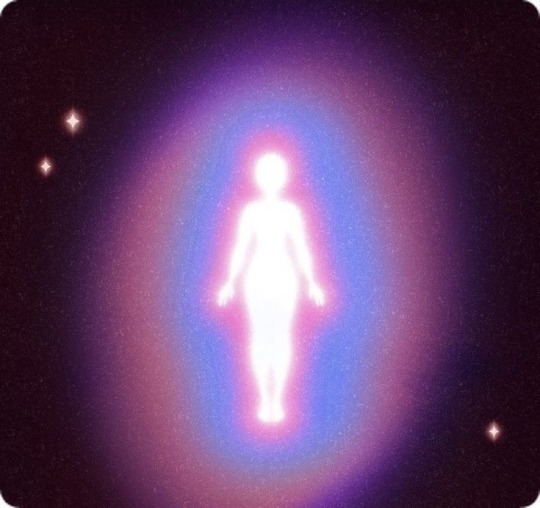
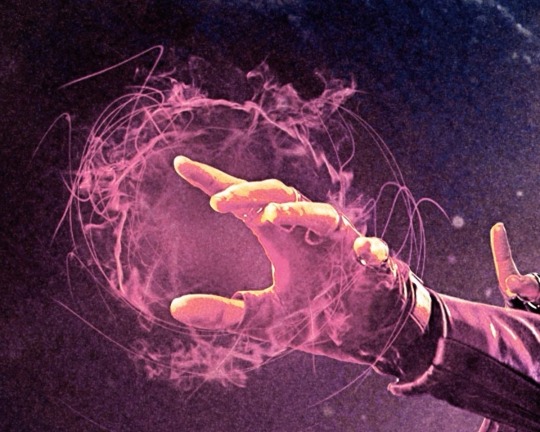
NOTE: i´m not a scientist nor a physicist. This essay is based on self interpretation of information and things i´ve learned about consciousness, quantum physics, nature of reality, etc.
We´re four dimensional beings, meaning we´re composed of both physical and non physical (intangible) things. We have three layers: body, psyche (alias consciousness) and soul. Our bodies are just the envelope, the vehicle our consciousness occupies in order to live a human experience. Accordingly, our true self is not our body, but the consciousness that occupies it. Having that in mind, we´re able to move to the next point.
Everything — and this is scientifically proven — is made of energy. Vibrating energy makes matter, and consequently both matter and energy have frequencies. Every single thing has a different frequency: objects, sounds, emotions, etc. Therefore, reality as a whole, with all of its elements combined, vibrates at its own frequency.
Thanks to quantum physics, we know particles of energy can be in different states and multiple places at the same time in superposition when there isn't a conscious observer. While being observed, energy/particles behave differently, being perceived at one state and place. This experiment shows the same particle can and does exist in many states/places at once, but we´re only able to perceive one state/place at a time.
ENERGY → MATTER → REALITY
We can only perceive one reality (state of energy/matter as a whole) at a time for the reason the human experience we're living limits us to do so. Although, like energy is coexisting in many places/states at once, and we know for certain that energy composes matter, which makes the (physical) reality, we can affirm there are many other realities besides this one, but we´re not able neither to perceive nor interact with them.
ENERGY → MATTER → REALITY
“ ↳ MATTER → REALITY
“ ↳ MATTER → REALITY
“ ↳ MATTER → REALITY
“ ↳ MATTER → REALITY
+∞
PINK: what we percieve
BLUE: what coexists but we don’t perceive
Summing things up, there are many other realities coexisting in the very same space as this one, but each reality exists in different frequencies, so realities never interact with each other. That said, we are able to introduce the main character: shifting.
Shifting doesn't happen in your consciousness, shifting happens with — and thanks to— your consciousness. Your body is trapped in this reality because it's part of this reality, for the reason bodies are physical things that can only exist in one state. Your consciousness, on the other hand, contrary to your body, can shift because it's not something physical, it's not made of matter. Consciousness doesn't belong to any reality, it just experiences them. Consciousness cannot die, so when your body faces death, your consciousness continues existing in other realities. This can explain both reincarnation and heaven, since your consciousness shifts to a reality that fits what you expect/believe you´ll experience after death.
With shifting, we´re doing the same but intentionally, choosing the reality we want to experience,with the difference our Cr body is still alive, so we can come back.
By shifting, we´re changing the frequency of our consciousness — which is the same as our Cr— to match the frequency of the reality we want to become aware of. You have to shift your inner world in order to shift the outer physical world (the 4d and the 3d).
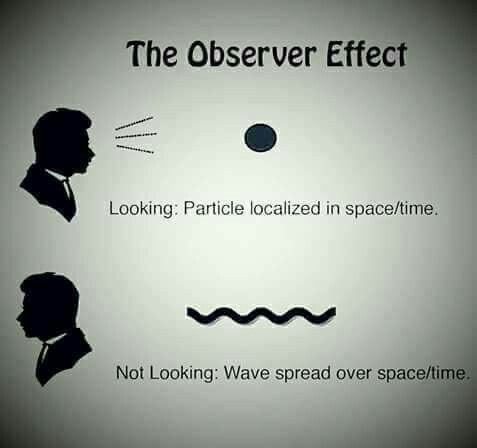
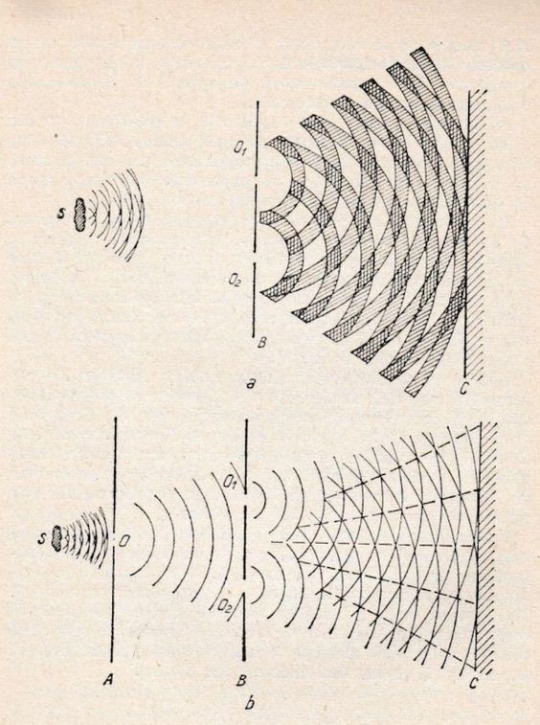
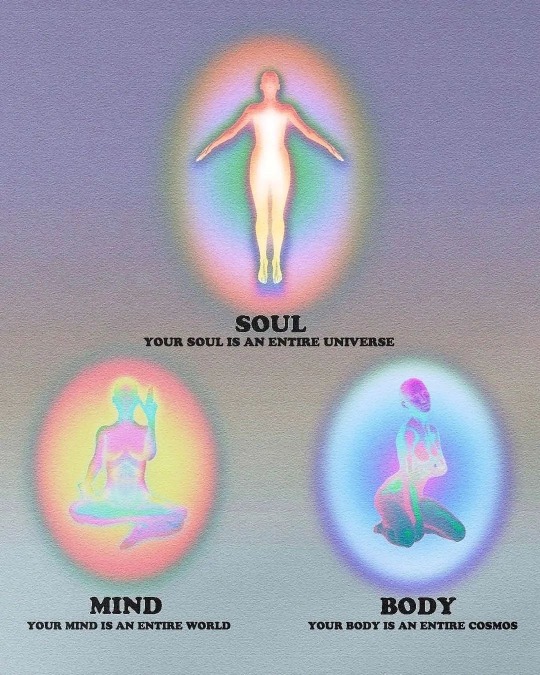

#reality shifting#shifting blog#shifting antis dni#reality shifter#loa#4d reality#shifting community#loa tumblr#loassumption#neville goddard#shifting tips#shifting consciousness#shifting stories#shifting realities#shifters#shifting#shift#anti shifters dni#hogwarts shifting#shiftblr#shifting advice#shifting diary#shifting method#shifting motivation#shifting storytime#shifting to desired reality#shifting to harry potter#shifting to hogwarts#shifting to percy jackson#shiftingrealities
2K notes
·
View notes
Text
LLMs are automated structuralism
From Fredric Jameson, "Metacommentary"
structuralism as a method or mode of research is formalistic in that it studies organization rather than content, and assumes the primacy of the linguistic model, the predominance of language and of linguistic structures in the shaping of meaningful experiences. All the layers or levels of social life are ordered or systematic only insofar as they form languages of their own, in strictest analogy to the purely linguistic: styles of clothing, economic relationships, table manners and national cuisines, kinship systems, the publicity apparatus of the capitalist countries, the cosmological legends of primitive tribes, even the mechanisms of the Freudian mental topology — all are systems of signs, based on differential perceptions, and governed by categories of exchange and transformation.
Probably obvious, but LLMs are automated structuralism, predicated on the idea that the "linguistic structures" Jameson mentions here (what we might now think of in terms of digitization or datafication) are capable of capturing everything significant about lived experience, if not things in themselves.
In place of the anarchy of the free and arbitrary play of signifiers in these interlocking levels of systems that function as languages, there is a faith that accurate probabilities can be assigned to every possible combination so that all the systems are anchored to some base reality.
Jameson argues that strcuturalism is anti-substantialist: it locates meaning in the difference between contrasting elements and not the thing in itself: "substance is replaced by relationship," so that "all meanings are organized, following the pattern of phonology, in pairs of oppositions or determinate differences."
But I find it hard to square that with what Lévi-Strauss, in his Introduction to the Work of Marcel Mauss, seems to want to insist about the relation between signifier and signified, that it is not arbitrary but the essence of the progress of human knowledge.
the two categories of the signifier and the signified came to be constituted simultaneously and interdependently, as complementary units; whereas knowledge, th a t is, the intellectual process which enables us to identify certain aspects of the signifier and certain aspects of the signified, one by reference to the other — we could even say the process which enables us to choose, from the entirety of the signifier and from the entirety of the signified, those parts which present the most satisfying relations of mutual agreement — only got started very slowly. It is as if humankind had suddenly acquired an immense domain and the detailed plan of that domain, along with a notion of the reciprocal relationship of domain and plan; but had spent millennia learning which specific symbols of the plan represented the different aspects of the domain.
I have to admit that I don't know how he can mean that, but maybe the idea here is that there can be no science or knowledge at all if we don't allow for words to relate in some necessary way to things, or that the statistical patterns of reference revealed in language use en masse isn't merely conventional or historical but reveals some basic a priori truth about the human condition, the universe as it has been given once and for all and how it really works. (The LLM = AGI fantasy partakes of this idea, I think.) But it just seems like a theological claim. The conclusion that Lévi-Strauss comes to here seems very odd to me:
The universe signified long before people began to know what it signified; no doubt that goes without saying. But, from the foregoing analysis, it also emerges that from the beginning, the universe signified the totality of what humankind can expect to know about it. What people call the progress of the human mind and, in any case, the progress of scientific knowledge, could only have been and can only ever be constituted out of processes of correcting and recutting of patterns, regrouping, defining relationships of belonging and discovering new resources, inside a totality which is closed and complementary to itself.
Maybe I don't understand how he means to use the words "universe" and "signified" and "totality" here. But it seems like he is saying the future is not unwritten, and that seems entirely unacceptable.
1 note
·
View note